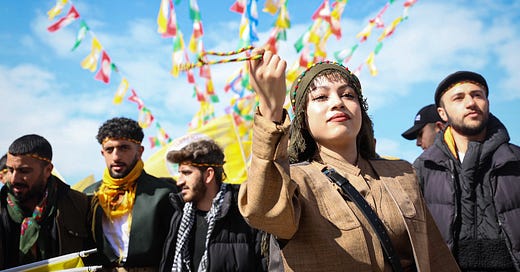İSTANBUL & URFA — As Turkey prepares for local elections in less than two weeks, all eyes are on the “Kurdish vote,” which is often defined as Turkey’s “swing vote”.
This is particularly the case in this year’s İstanbul race. Many discussions in the pre-election period focused on whether …
Keep reading with a 7-day free trial
Subscribe to Turkey recap to keep reading this post and get 7 days of free access to the full post archives.





